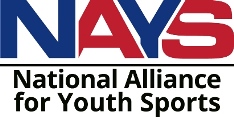No, recently, Tom Brady himself gave an interview for a radio station in Boston in which he talked about youth sports
He talked about how, when he was a child, sports were “localized,” meaning kids didn’t travel way out of their way to play in serious, high-pressure games. He went on to say that he was also encouraged to try his hand at different types of sports, including everything from baseball to basketball to soccer and beyond. He also touched on how most of this playing happened at home, in his street and yard, and was informal and just plain fun in nature.
Sadly, though, it seems that the kind of fun, frivolous play that Brady enjoyed as a child is a real rarity these days. Today’s kids are often forced to specialize in just one sport, rather than being allowed to try out different things. They also, more often than not, have to commit themselves to demanding travel teams and playing in high-pressure games. They’re taught to worry about scholarship opportunities and the possibility of “going pro” before they’ve even really gotten the hang of the sport they play.
Do you see a problem with all of this? If you don’t, then…well…you should. Children should be allowed to JUST play and enjoy like they were back in the day. Obviously, it worked out just fine for Brady and for many other professionals. They should be allowed to enjoy any sport they like just for the sheer fun of it. After all, they’ve got the rest of their lives to get serious about a particular sport and to actually worry about what they’re going to do with the rest of their lives.
Do everything you can to make sports FUN for your child. If he or she is meant to “go pro,” the rest will follow without anyone forcing it. In fact, not pushing your kid too hard lessens the chances of burnout and actually increases the chances of a successful, long-lasting experience with sports, so stop the pressure and start the fun.




